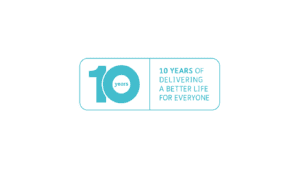Digital care record systems have gone from a ‘nice to have’ to a ‘need to have’ in social care. Most providers have moved to a digital system or are in the process of implementing one. With widespread digital uptake the question has changed from; ‘are you using a digital system?’ to ‘are you using the right digital system for your service?’
Just under two years ago the government launched its ‘Digitising Social Care’ campaign, delivering the three year £150 million investment for digitally transforming adult social care, as was set out in the 2021 white paper, People at the Heart of Care.
This campaign built on a decade of digitisation in Social Care. Driven in part by the pandemic. That saw care providers take on a variety of different digital systems to help them deliver outstanding care.
The driving force of the ‘Digitising Social Care’ campaign has focussed on ensuring 80% of providers, and at least 80% of people in receipt of care, have a Digital Social Care Record (DSCR) that is compliant with their standards in place by March 2024. While it fell slightly shy of this target. There has still been a significant uptake in digital social care records. From the 40% of providers using them at the start of the campaign. The uptake reflects the benefits of digital systems in care, and the necessity of compliance with the established DSCR standards. These positive results have led to the government extending funding for the campaign until March 2026.
Evaluating your system
Nourish Care was the first system to join the NHS England Assured Solutions List back in 2021. Since then, the list has grown significantly, so how do you choose the right one?
Incompatibility between systems and services is a rising source of operational frustration for providers. ‘All-in-one’ systems can be limited by the applicability and lack the resources to support more complex or person-centred care, while specialised systems can be disconnected, leaving your team to fill in the gaps between them manually.
Routine system evaluations are a great way to uncover and address these frustrations. This process involves identifying the issues with the platform you are using and evaluating the impact of this issue on your organisation. It takes time and effort to establish the best criteria sets for your service. We have included a guide which you can use to help you get started.
It takes a village
Digitisation has impacted everyone involved in care, so it is best practice to include your entire organisation in the evaluation process. Any frustrations caused by your digital system will be felt by carers and coordinators alike.
Your organisation has multiple roles and responsibilities, and it is important to involve them in your evaluation process through interviews and surveys. An example of some common roles are:
- Frontline workers who provide care and support
- Service managers who are responsible for individual services
- Area managers who are responsible for specific regions and/or care types
- Central leadership who are responsible for strategy, policy and compliance
If possible, you should also involve the people who utilise your service in this process, such as when evaluating the effectiveness of integrations with other systems like PainChek or GP Connect as well as circle of care functionality like a family portal.
The more experiences you can account for when evaluating your system, the more complete your picture of its impact will be.
Considering your people
Digitisation in Social Care happened at such a rapid pace since COVID that, understandably, some people have been left behind. When evaluating the impact of your system it is important to consider not just the functionality, but also the user experience.
Do your team feel confident not only with the system, but with the support they have around it? Are there resources and training available to help your team improve their understanding of the system? Is there a customer support team they can reach out to for guidance and support?
Many issues with digital systems come from their misapplication. When evaluating your current digital platform, it is vital to consider your team’s comfort with the system. It might be a matter of reviewing and reworking the way you are implementing the system, as opposed to changing your system all together.
The right roadmap
To provide outstanding care, you must constantly be reviewing and improving upon your processes in a responsive and caring way. It is natural to expect the same of your system, as you both adapt to the always evolving reality of care provision.
Digital skills develop over time. With that time it is common to look for more ways to apply your skills to support your care. Such as through data reporting and analysis. By routinely reviewing the capabilities of yourself and your system. You can make sure you are maximising the benefits of your digitisation journey.
Evolving standards for digital care record systems
The new DSCR standards must be fully met by everybody on the ASL. They represent the next step of Social Care’s digitisation journey. An evolving emphasis on data, security and interoperability that reflects the success and potential of digital software in care.
The new compliance regulations were announced last year and Nourish has been busy ensuring that it meets each of the 14 standards. This level of screening will mean that only software suppliers who meet stringent standards will be able to remain on the NHS Assured Solutions List.
The power of knowledge
With so many options available to care providers for digital systems, it is the perfect time to review the needs of your service and community. There is a wealth of suppliers eager to explain their system and its capabilities to you. By knowing what you have and what you want from a digital platform. You will be well-equipped to get what you need.
At Nourish we are well versed in helping people to transition from underperforming digital care record systems to ours. We have resources, guides and team members who would be delighted to talk to you about the process further. If you would like to learn more contact us.








